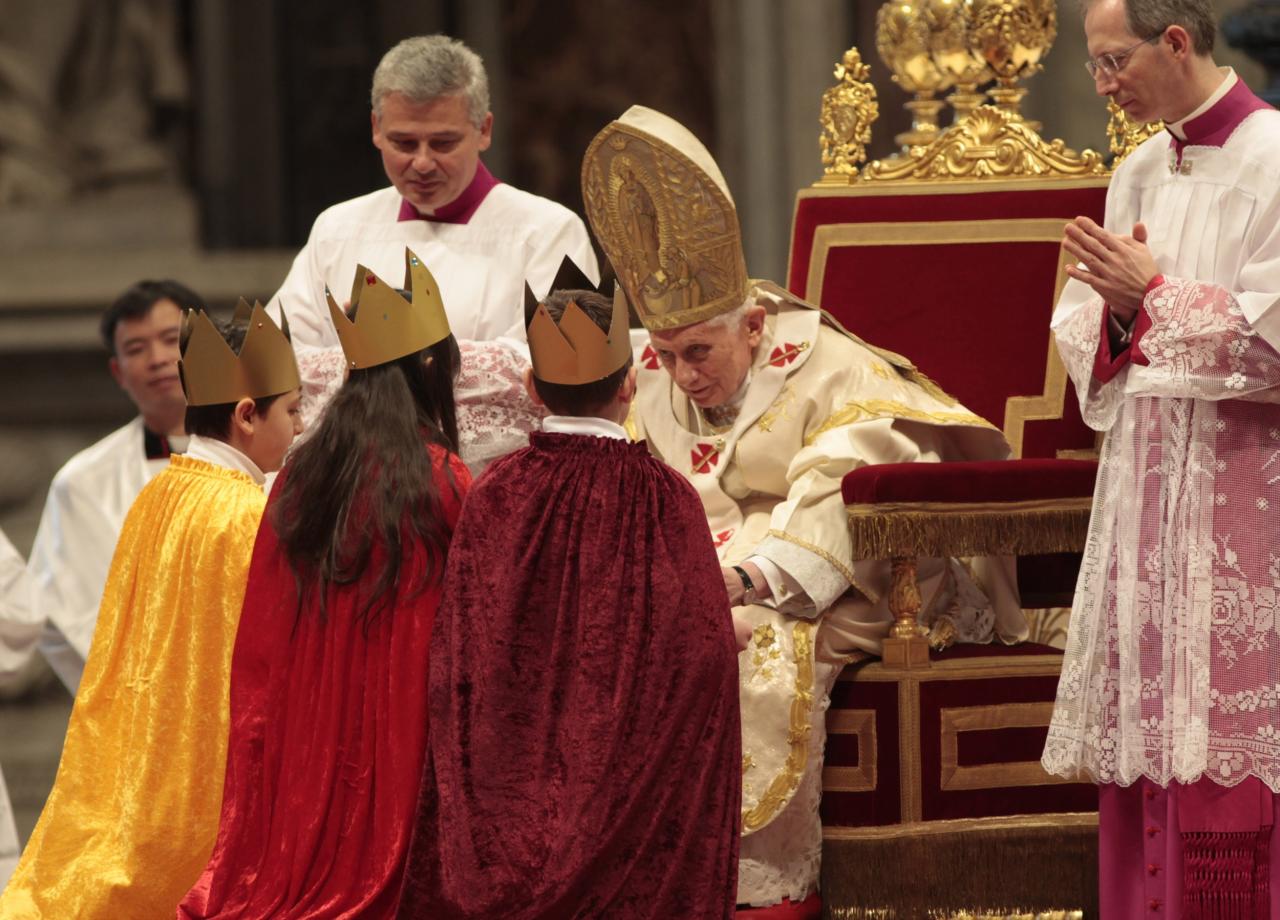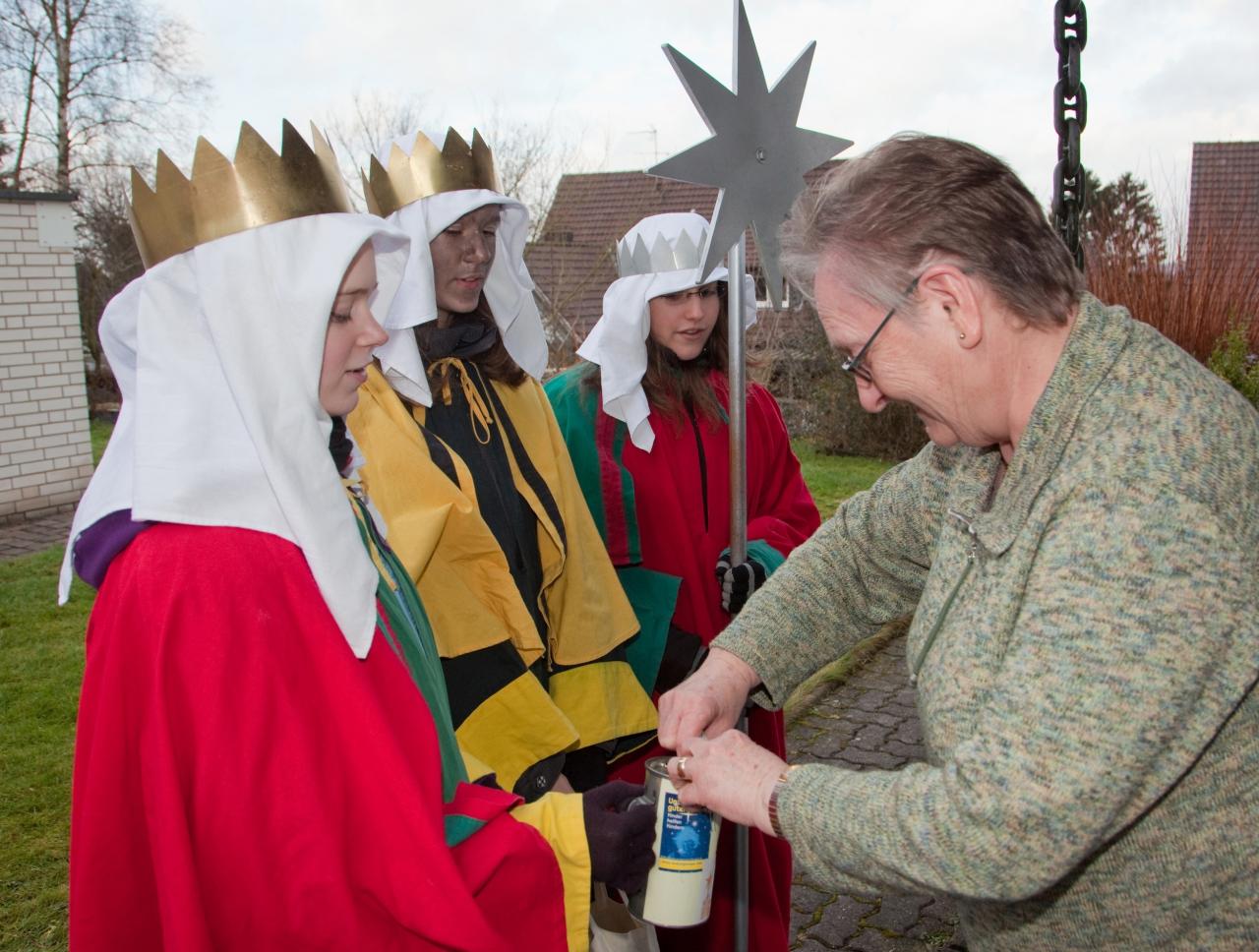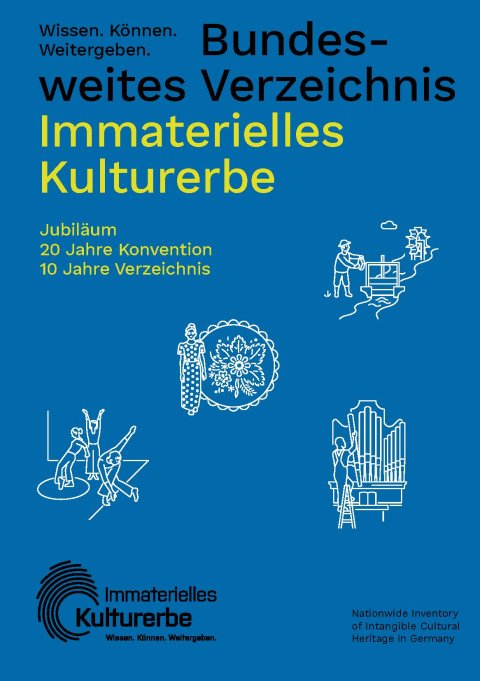Nationwide Inventory of Intangible Cultural Heritage
Carolling

Every year around the 6th of January (Epiphany) children and adolescents all over Germany go from house to house dressed as the Three Magi, singing traditional and new songs and bless people for the new year, while collecting donations for children's aid projects around the world. They write the symbols "C+M+B" in chalk on door frames which recall the names of the Three Magi, Caspar, Melchior and Balthasar, and can also be understood as "Christus mansionem benedicat – May Christ bless this house". The songs of the Carol singers are regional in origin and handed down from generation to generation.
Facts & figures
Crucial date: January
Inscription: 2015
Domains: oral traditions and expressions; social practices, rituals and festive events
Where to find: nationwide (and abroad)
Contact
Kindermissionswerk "Die Sternsinger"
Stefan Rueben
@email
www.sternsinger.de
The form of cultural expression is inspired by the biblical narrative of the magi in Matthew’s gospel. The present-day begging custom derives from various customs of the Three Magi, dating back to the transfer of the remains of the Three Magi to Cologne in the year 1164. According to sources, this custom was introduced by monastery and choir students of diocesan towns, cloisters and monasteries in the middle of the 16th century. 350 years ago, the singers already went from house to house with crowns, censer and star, spoke traditional sayings, sang traditional songs and asked for gifts.
Since 1959 the "Three Magi Singing Campaign" has become established throughout Germany and has developed to one of the world's greatest solidarity actions of children for children. Around 330,000 boys and girls and around 90,000 adolescent and adult escorts take part in this action, which supports more than 2,000 children's aid projects annually. Between 1959 and 2015 a total 948 million Euros were collected in support of nearly 68,600 projects and relief programmes for children in Africa, Latin America, Asia, Oceania and Eastern Europe.
Carolling is organised mostly locally by Catholic vicarages and communities. For a number of years, however, it has also taken place in ecumenical openness with protestant children and adolescents partaking. Moreover, the number of Muslim and non-religious bound boys and girls is increasing.



